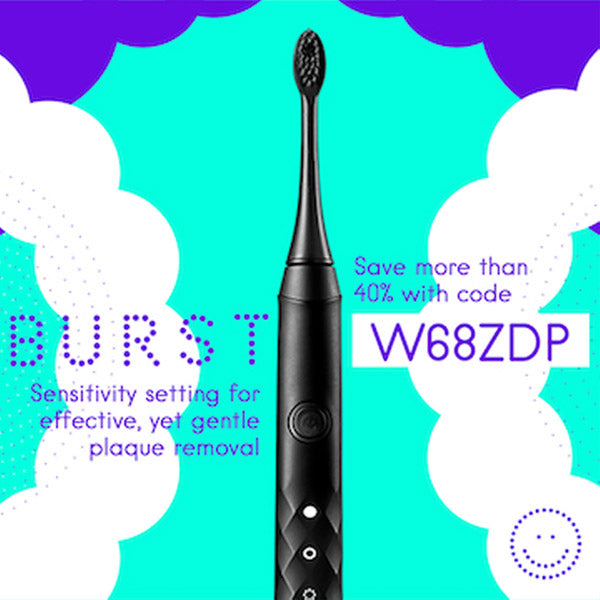Cancer Patients: What Are the Long-Term & Short-Term Effects of Dry Mouth?

Introducing Aquoral Protective Oral Spray
Contributed by: K Pharmaceuticals
If you’re among the approximately one in four adults suffering from dry mouth, you might wonder how it affects your health now and in the future. Having enough saliva in your mouth is important for talking, chewing, swallowing, and avoiding discomfort throughout the day. When you have dry mouth, also called xerostomia, your salivary glands don’t make as much saliva as they should. For cancer patients it might be because of the kind of medication you are taking or the fact that you are taking multiple medications. Many cancer treatments, including radiation for head and neck cancer can directly affect the salivary glands, resulting in decreased saliva production and Dry Mouth.
The good news is, there are effective treatments for dry mouth that can help you avoid the more serious symptoms. But not everyone knows about these treatments or is willing to try them. If you’re not sure if it’s worth getting help for dry mouth, consider the problems it might cause both in the short and long term for your oral health if left untreated.
What Are the Most Common Short-Term Effects of Xerostomia?
The most common symptom of dry mouth is the uncomfortable feeling often referred to as “cottonmouth”. When your mouth is extremely dry, you will have difficulty eating food, since chewing and swallowing feels nearly impossible without enough saliva. You might even notice that you can’t taste food or drinks like you used to, making eating feel like a chore you no longer enjoy.
Suffering from dry mouth can also start taking its toll on your sleep. Arising multiple times a night for water creates a restless cycle that inevitably involves the bathroom. Even talking can be challenging when you have dry mouth. You need enough saliva to talk clearly, and you might find it hard to properly enunciate so other can clearly understand you. This short-term effect of dry mouth can affect your social life and even your work life. You might begin to dread situations where you must talk to people or experience self-esteem issues.
Sometimes dry mouth isn’t just uncomfortable and inconvenient, it can also be quite painful. Some short-term effects of xerostomia can include mouth sores, cracked lips, and a burning sensation in your mouth and throat. If you don’t treat dry mouth as soon as possible, these problems could become long-term issues that affect you for years to come. You may also notice more symptoms of dry mouth if you let it continue without treatment for too long.
Does Dry Mouth Cause Serious Long-Term Effects?
It’s important to start looking for ways to treat your dry mouth as soon as you realize your mouth isn’t making enough saliva. If you don’t, long-term effects related to your mouth and teeth can set in quickly.
This is because saliva is responsible for protecting your mouth from bacteria. It also puts a protective layer on your teeth to keep them safe from bacteria, as well as helping to wash away small pieces of food.
Additionally, saliva contains things like antibodies that kill bacteria. It also features minerals like fluoride and calcium that can repair the enamel on your teeth to keep them strong. Without enough saliva in your mouth to fight bacteria and strengthen/protect your teeth, you’re at risk of getting gum disease, cavities, and bacterial infections.
Letting dry mouth continue without treatment can also lead to digestive problems. This is because saliva contains amylase, an enzyme that helps break down starches in food to make them easier for your body to use. So, if your dry mouth becomes chronic, you might have trouble getting the right nutrients from your food, and that can affect your overall health. That’s why it’s important to think about how to treat dry mouth.
What Are the Most Effective Dry Mouth Remedies?
Now that we understand why it’s important to get help for dry mouth, let’s talk about the best ways to treat it. The right solution depends on what is causing your dry mouth.
For example, if dry mouth is a common side effect of the medication you’re taking, talk to your doctor about switching to a different medication if possible. Similarly, if you have a health condition that is known to cause dry mouth, getting treatment for that condition might make the dry mouth go away.
If there is no way to treat the condition or switch to a different medication, you can try some natural remedies. For example, sugar-free lozenges or gum can give you temporary relief. You can also rinse your mouth with a homemade mouthwash made from baking soda, salt, and water.
Your doctor or dentist might also prescribe a product with ingredients that work like saliva. One option is Aquoral Spray, a prescription dry mouth spray that helps moisturize and protect your mouth. Aquoral will provide quick relief that lasts up to six hours renewing one’s ability to chew, taste, swallow, talk, and sleep.
In fact, during clinical trials of this dry mouth spray, 92% of patients said Aquoral relieved their dry mouth symptoms and 84% of patient said it improved their quality of life. If you want a simple and effective dry mouth treatment that you can use discreetly, download this form to talk to your doctor about Aquoral. For a faster online process visit this TeleHealth resource, it's a faster online process with no waiting in line, no doctor visit and no co-pays! It could help you avoid both the short and long-term effects of dry mouth.
Use code SES






